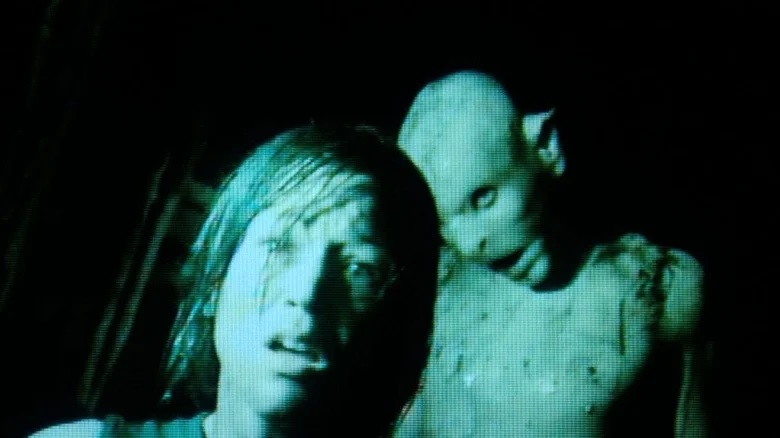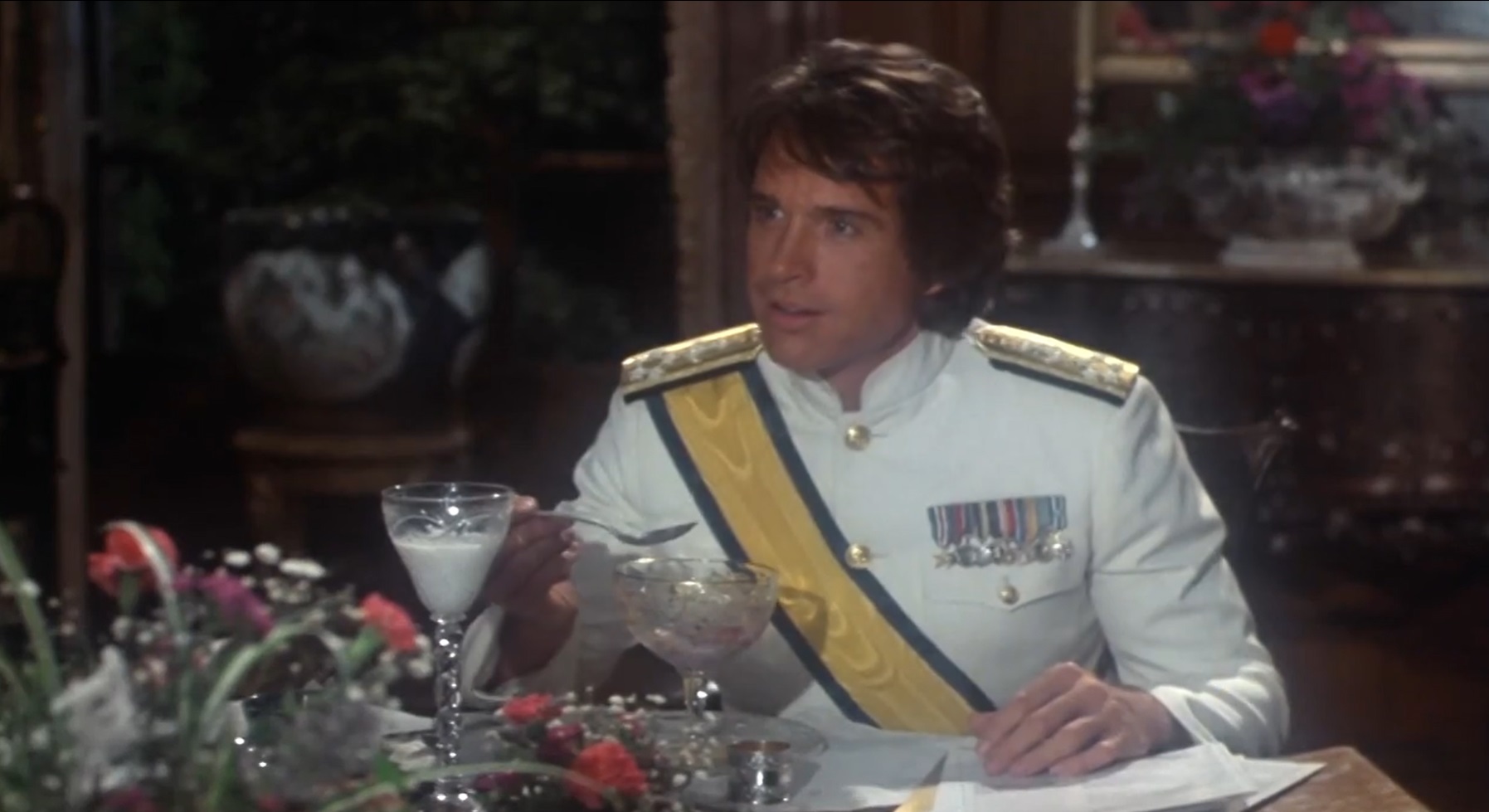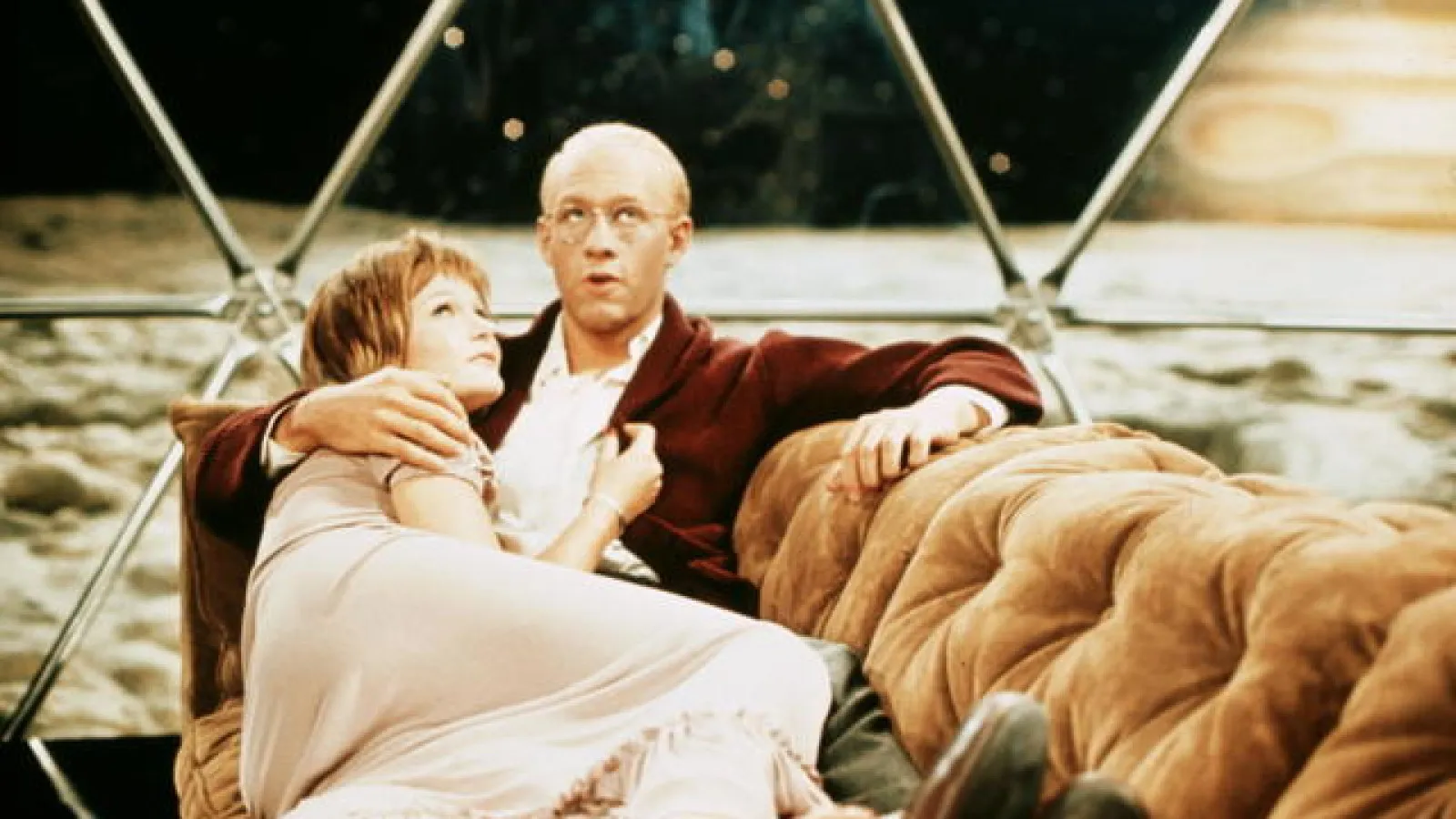
I forced myself to watch Slaughterhouse-Five (1972) the other day. I’d actually watched it as a kid, and didn’t understand a damn thing, so I saw it as a challenge. Sadly, now I can understand the movie very well indeed, but it’s specifically that clarity of mind that makes me dislike it less, rather than like it more.
By Emad Aysha
Let me begin by praising the movie for its narrative skill, as it jumps back and forth through the time-travelling of the protagonist, Billy Pilgrim (Michael Sacks), as he reminisces about the future of his past. This is so well handled that it would leave Christopher Nolan blushing.
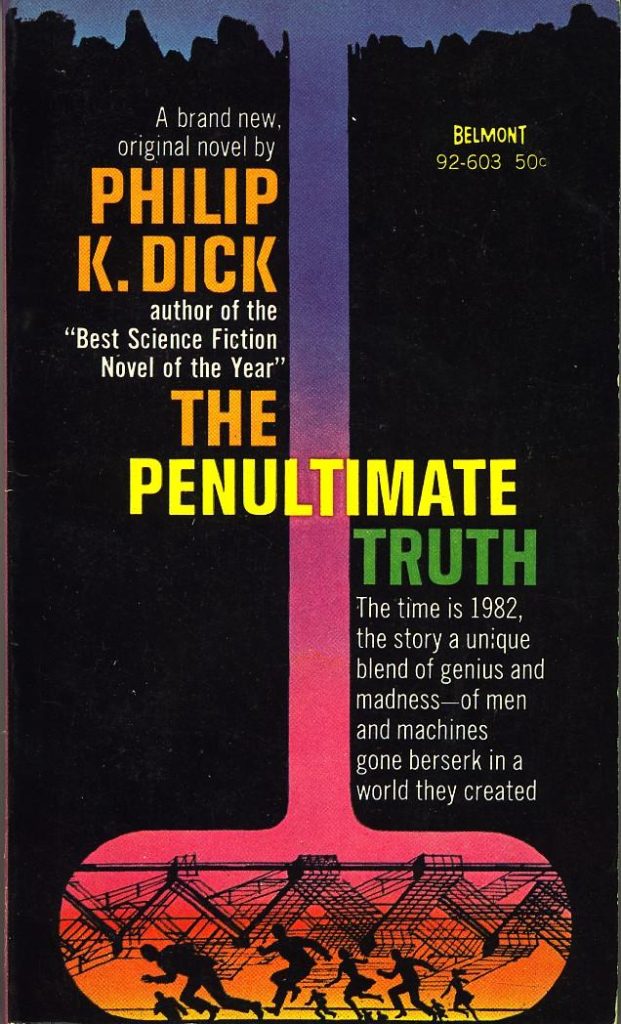
WAR-TIME SPECIAL: The central character here is a native American (modelled on Eisenhower) who can age and de-age himself thanks to a faulty time-travel experiment involving faked 'alien' artifacts. How appropriate!
It’s second only to the time-warping you get in Philip K. Dick’s The Penultimate Truth. The lush cinematography and expert movie soundtrack are what does the trick. And then there’s the acting. I couldn’t believe that the three phases of Billy Pilgrim’s life were portrayed by the same actor, looking scrawny and ineffectual as a punk recruit and then beefy and sardonic as a middle-aged businessman.
The other performers are very natural and fit their parts well, particularly the soldiers with whom Pilgrim is confined at the outset of the movie, during his flashbacks to WWII in Germany. 1950s America is not nearly as interesting, but it’s captured very well, and the actors fit the bill too, despite being somewhat lacklustre.
It’s the sci-fi stuff I don’t like. Pilgrim, for some reason, is the focus of the interest of some extraterrestrials who love to study other sentient beings, and you see a hint of this when Pilgrim has his first baby.
He gets along better with his pet dog than he does with his wife, and the prospects and responsibilities of being a father – that’s one thing I noticed as a kid. But it’s the self-indulgence of it all that gets you down, with his own personal star moving around after him in the night sky.
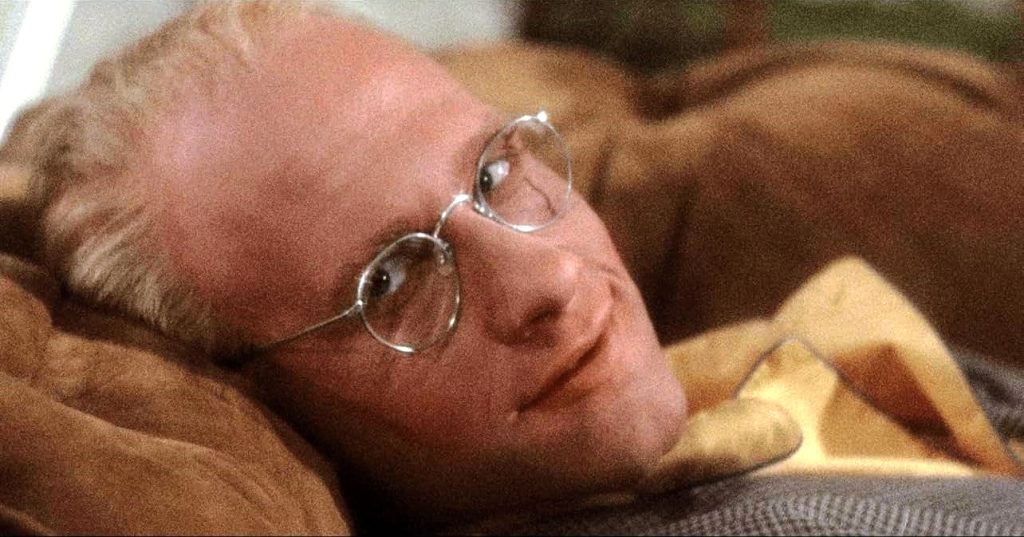
FAULTY STAR: Michael Sacks as Billy Pilgrim. Can you really empathize with someone who has a set facial expression like this?
When his wife gets killed in a freaky car accident and he gets out of the hospital himself – he was in a plane crash and his wife was racing to get to him – he gets transported to another planet and kept alive in a dome.
Typically, he is accompanied by his dog and is then gifted with an attractive woman to mate with in front of the invisible aliens. And he completely forgets his grief.
Billy Pilgrim was a pampered child, spoiled by his mother against his harsh and distant father, and wouldn’t you know it, when he marries, he marries an overweight woman who clearly reminds him of his mother.
As for his future mating partner, by pure coincidence, she’s an exploitation actress that he took a liking to, having found a centrefold of her in a naughty magazine belonging to his wayward son.
There’s no indication these aliens are telepathic, so how did they know to get him this particular playmate? It’s all too convenient. The strength of the sci-fi sequences lies in the fatalistic time philosophy of the aliens.
They don’t have a conception of freewill – only humans do in the universe – and he learns to accept that time is set, so we should focus on the upside of our lives as compensation.
Like I said, he’s no protagonist. And he’s ugly too, with a silly grin and a nose that would make Walter Matthau look handsome. Watching this, you begin to see the twisted logic behind alien abduction scenarios, which is self-centeredness.

GALACTIC PLAYMATE: Valerie Perrine, always a hot prospect for sci-fi heroes, even before she played Lex Luther's hubby (Eve Teschmacher) in 'Superman' (1978).
There’s anthropocentrism at the level of planet Earth, where human beings are somehow considered necessary in the galactic schema of things. However, this in turn reflects the self-centeredness of the so-called abductee.
Someone unimportant is making himself feel charmed because if someone somewhere finds you interesting, then there must be something special about you, after all. This expands itself into a national narrative in the moviemakers’ hands – can’t speak for the original Kurt Vonnegut novel – since the hero is clearly a foil for the country. Hence, the name ‘Pilgrim’ is a kind of condemnation of self-righteousness.
Even his playmate, the ever-lovely Valerie Perrine, is named ‘Montana’ Wildhack. When he’s a POW, the Germans dress him up in a woman’s coat, and he’s called fag by some of the American soldiers even before that.
And he clearly didn’t get enough attention as a kid from his dad, which is why he bonds with the fatherly Edgar Derby (Eugene Roche), a former teacher. One of the inmates who hates him is interestingly named Roland ‘Weary’ (Kevin Conway).
There’s also a lot of isolationism in there. When the young Pilgrim is transferred to Dresden, he describes the city as being like the Land of Oz. It’s so cultured and colourful it might as well be on another planet. You get my drift? Yet another condemnation of small-town America. As if I or anybody watching this should care!
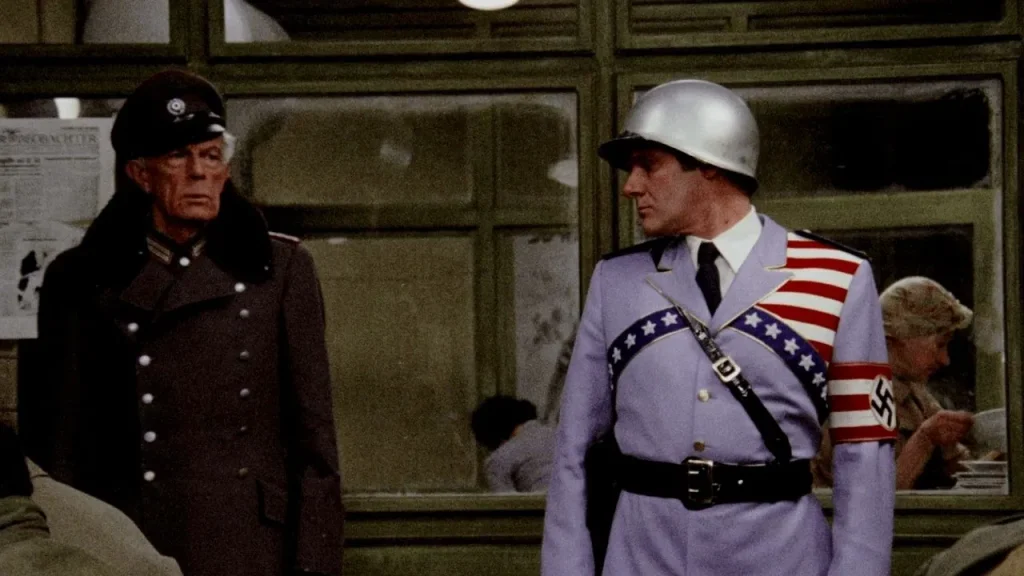
COLD WAR CLOWN: A scene from the POW camp in the soon-to-be ill-fated Dresden. Here the Germans dress up an American as a Nazi recruit in an effort to drum up support against the Soviets. How prophetic!
The movie doesn’t make you care by identifying with the hero. You don’t feel his exploits or tragedies are yours, and it doesn’t make you admire him for his morals or charisma or anything. The scene where he smiles at the drive-in movie, seeing the nude Montana, with his whole family present, doesn’t make you like him much either. Never mind how quickly he gets over his overcommitted wife’s death.
The movie is intended to be an anti-war epic, with the present-day timeline set in the 1960s, during the Vietnam War, and featuring concerns about national unity in the story. (Pilgrim’s son attacks Catholic gravestones at one point as a teenager, only to volunteer for Vietnam, and there’s class antagonism in the WWII US army). But it still falls flat. And the alien abduction comes too late in the game to rescue it, only to the me, me, me focus of the story.
What a self-destructive waste of the cosmic moviegoer’s clock.




